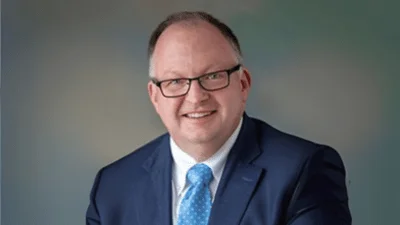Gov. J.B. Pritzker | Governor JB Pritzker / Facebook
Gov. J.B. Pritzker | Governor JB Pritzker / Facebook
Summertime before an election is when the politicians in Illinois start cutting ribbons and issuing press statements about all the taxpayer money they are handing out for special projects. This year is no exception with Gov. Pritzker announcing millions in grants to various public and private entities.
The numbers can be misleading and individual award amounts must be put into context. While some newspapers report on the grant awards, they usually just regurgitate the press and fail to dig past the talking points.
The day after he signed the largest budget in state history, Pritzker announced $41 million was awarded to 32 rural communities for water and sewer projects. That sounds like a lot of money, but on average it is less than $1.3 million per community – not much given the problems that need to be solved. For more context, it isn’t much when you consider it's .00077 of the $53.074 billion budget and wouldn’t even register as a rounding error.
A week after the $41 million was announced, another press release touted $5 million in grants to 151 chambers of commerce from around the state. In the statement, DCEO Director Kristin Richards said, “Through the B2B Local Chambers grant program, the State of Illinois is providing support to dozens of chambers of commerce in communities that were hardest hit by the COVID-19 pandemic.” Among the chambers of commerce being funded are those located in wealthy communities such as Arlington Heights, Barrington, Deerfield, Elmhurst, Orland Park and Wheaton. The entire list and amounts awarded can be accessed HERE.
But, this isn’t the whole list of taxpayer funded grants going to private business associations. The budget bill that was signed into law lists $19,558,791 for entities listed as a “chamber of commerce.” Many of these chambers are identitarian groups – Asian, South Asian, Hispanic, Metro Black or based in a smaller areas like Little Village or Ravenswood.
Additionally, millions more in taxes are going to other local business development groups that are not listed as chambers of commerce but essentially do the same thing. For example, the Far South Community Development Corporation is receiving a taxpayer-funded grant of $12,711,850. They are a private 501c3 non-profit that supports business.
Below is a spreadsheet of nearly $20 million in grants to other chambers. Some groups are listed twice, receiving grants in two different sections of the budget bill.
| SB 251 - FY2025 Budget Bill | ||
| Page No. | Amount | Chamber of Commerce |
| 10 | $1,500,000 | Black Chambers of Commerce |
| 36 | $250,000 | South Shore Chamber |
| 270 | $1,500,000 | Chicagoland Chamber of Commerce |
| 270 | $1,500,000 | Black Chambers of Commerce |
| 290 | $250,000 | Little Village Chamber of Commerce |
| 290 | $1,000,000 | Englewood Chamber of Commerce |
| 291/292 | $250,000 | South Asian American Chamber of Commerce |
| 292 | $250,000 | Asian American Chamber of Commerce |
| 292/293 | $250,000 | Assyrian American Chamber of Commerce |
| 295 | $1,000,000 | Greater Englewood Chamber of Commerce |
| $750,000 | Grand O’Hare Chamber of Commerce | |
| 306/307 | $150,000 | Northwest Hispanic Chamber of Commerce |
| 308 | $18,056 | South Asian American Chamber of Commerce of Illinois |
| 308 | $500,000 | Hispanic Chamber of Commerce of Illinois |
| 308 | $237,196 | Southeast Chicago Chamber of Commerce |
| 308 | $250,000 | Greater Roseland Chamber of Commerce |
| 309 | $125,000 | Little Village Chamber of Commerce |
| 309 | $33,680 | Logan Square Chamber of Commerce |
| 309 | $69,727 | Black Chamber of Commerce of Lake County |
| 310 | $210,868 | Asian American Chamber of Commerce of Illinois |
| 310/311 | $250,000 | South Asian American Chamber of Commerce of Illinois |
| 342 | $200,000 | Black Chamber of Commerce of Lake County |
| 342 | $200,000 | Lake County Chamber of Commerce |
| 343 | $250,000 | South Shore Chamber |
| 343 | $500,000 | Andersonville Chamber of Commerce |
| 343 | $500,000 | Lincoln Square Ravenswood Chamber of Commerce |
| 343 | $500,000 | Edgewater Chamber of Commerce |
| 344 | $200,000 | Metro Black Chamber of Commerce |
| 345 | $250,000 | Greater Roseland Chamber of Commerce |
| 345 | $750,000 | Southeast Chicago Chamber of Commerce |
| 350/351 | $1,500,000 | Hispanic Chamber of Commerce of Illinois |
| 355 | $250,000 | South Asian American Chamber of Commerce of Illinois |
| 356 | $250,000 | Southeast Chicago Chamber of Commerce |
| 358 | $250,000 | Aurora Regional Hispanic Chamber |
| 358 | $250,000 | Little Village Chamber of Commerce |
| 358 | $250,000 | Belmont Central Chamber |
| 358 | $250,000 | Logan Square Chamber of Commerce |
| 358 | $250,000 | Wicker Park Chamber of Commerce |
| 358 | $250,000 | Wicker Park Chamber of Commerce |
| 358 | $150,000 | Northwest Hispanic Chamber of Commerce |
| 358 | $250,000 | Midway Chamber of Commerce |
| 544 | $250,000 | South Shore Chamber |
| 586/587 | $144,264 | Austin Chamber of Commerce |
| 598 | $500,000 | The Greater Englewood Chamber of Commerce |
| 1011 | $500,000 | Southeast Chicago Chamber of Commerce |
| 1021 | $400,000 | Hyde Park Chamber of Commerce |
| 1481 | $50,000 | Uptown Chamber of Commerce |
| 1601 | $100,000 | Austin Chamber of Commerce |
| 2977 | $20,000 | Little Village Chamber of Commerce |
| $19,558,791 | ||
Taken together, the $25 million to private business organizations should have been spent on more worthy endeavors. Numerous other groups are doing important work for some of our most vulnerable populations. The Illinois Association of Free and Charitable Clinics will receive $9 million in grants this year. On their website, they thank the general assembly for restoring funding to them in this year’s budget. This worthy association provides free medical care to our poorest population. Misericordia is the gold standard when it comes to care for the developmentally disabled and a worthy organization. In this year’s budget, they receive an individual grant of $300,000. Hopefully, additional payments may be made to them for specific services, but that is not obvious in the budget. If Misericordia were not in operation and its residents had to be placed in a state operated home, the cost to the taxpayers would be many times greater than what Misericordia charges.
The discussion isn’t always about how much money we spend, but how we spend it. Both areas need more scrutiny.






 Alerts Sign-up
Alerts Sign-up